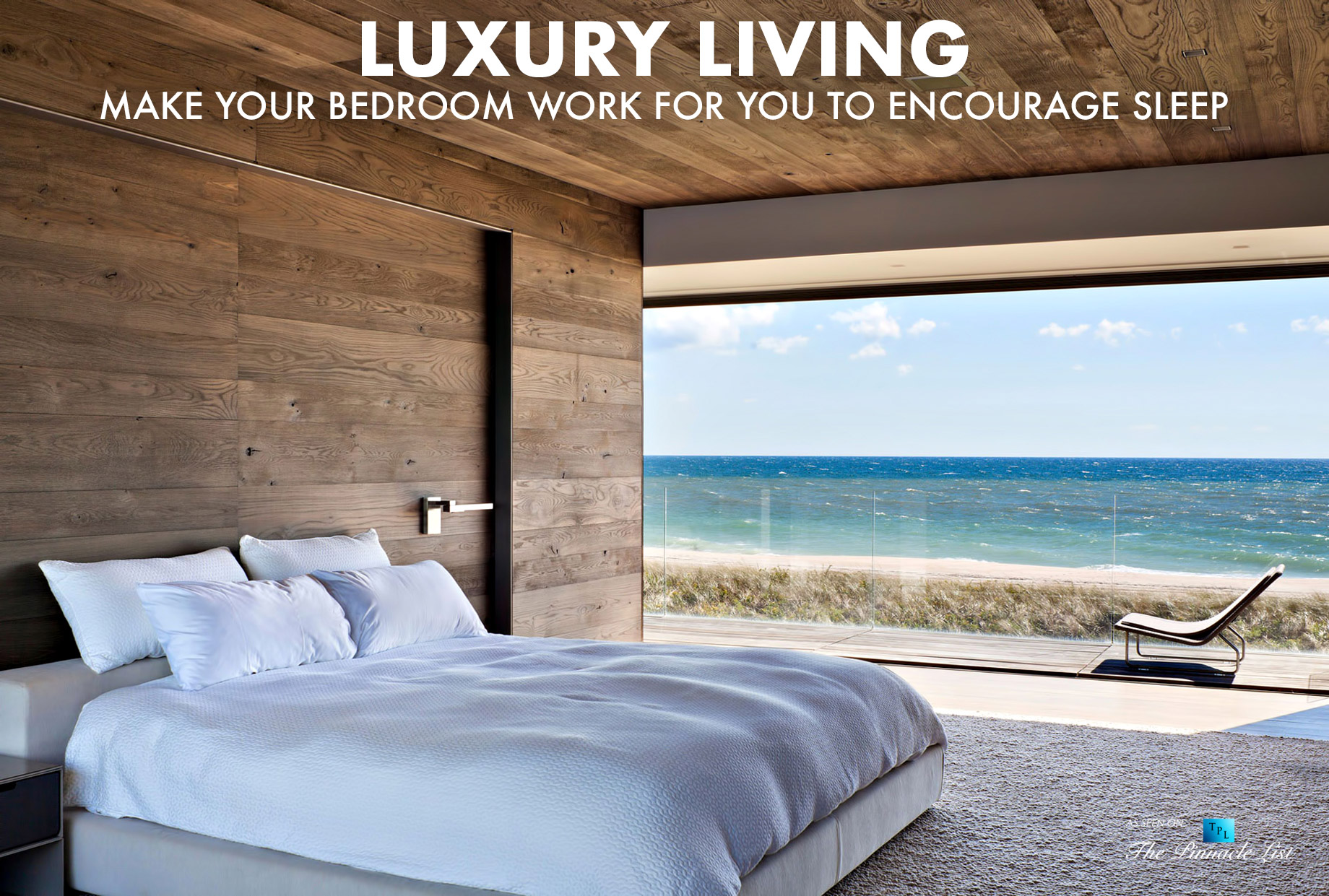
Often, going to bed can be a matter of routine, one that you don’t think about much – but humans spend a third of their lives asleep. The processes that the brain goes through while you sleep are crucial to your mental as well as physical health. That makes the place you sleep hugely important. While you might not spend much time thinking about your bedroom’s décor unless you’re redecorating, your comfort and warmth play a big role in how well you sleep. With that in mind, here are a few tips to make your bedroom a more amenable luxury living environment to catching those Z’s.
Straight To The Source, Your Bed
It makes sense that optimizing your room for sleep would start at the place you sleep: your bed. Both the quality of your mattress and the comfort of your bedsheets play a role in the quality and length of sleep you get. When you sleep on a comfortable mattress, your body is able to fall into the deeper stages of sleep, meaning that you wake up less, you’re more likely to feel well-rested, and you’ll be asleep for longer. There’s no recommended length of time after which you should replace your mattress, but if you find yourself uncomfortable on your bed, waking up during the night, or not feeling rested, you might want to assess whether your mattress is working for you.
With your sheets, on the other hand, it’s recommended that you replace your sheets after seven years, or once the fabric starts to fray and give out. Higher thread count sheets are often softer and more comfortable – and that means you won’t be distracted by itching or scratching sheets while you’re trying to get to sleep. If you find yourself frustrated with your comforter or your fitted sheets, it might be time for a replacement.
Curtains, Darkness, And Why It Matters
Even in the digital age, we are attuned to the sun and rely on it to tell them when it’s time to sleep and wake up. One of the most important factors in falling asleep is darkness – but that can be difficult. The rhythms of the sun, especially in the summer months, and the lights of technology in your bedroom could be throwing off your natural rhythm. You’re less likely to fall asleep if the sun is still shining, or if you can see light outside, so if light bleeds through your curtains (or blinds), something more opaque might be a good investment.
Blackout curtains can be helpful for people who have trouble sleeping, because (like their name suggests), they block almost all light from outside. Inside, there’s the problem of electronic lights: phone chargers, computers, and other technology, even when not active, usually have standby lights that can distract your brain and make sleep more difficult. To combat this, you might want to use or add to your bedroom storage with a special “technology cabinet” where you can put those blinking lights at night – armoire doors or even a simple cupboard or drawer can help!
Of course, it’s not only your bedroom that impacts how well you sleep: your lifestyle, diet, and other factors all have their say. But it’s easy to forget the bedroom’s role in sleep, even though we spend so much time there. Next time you have trouble sleeping, consider how your bedroom might be adding to or compounding those difficulties.